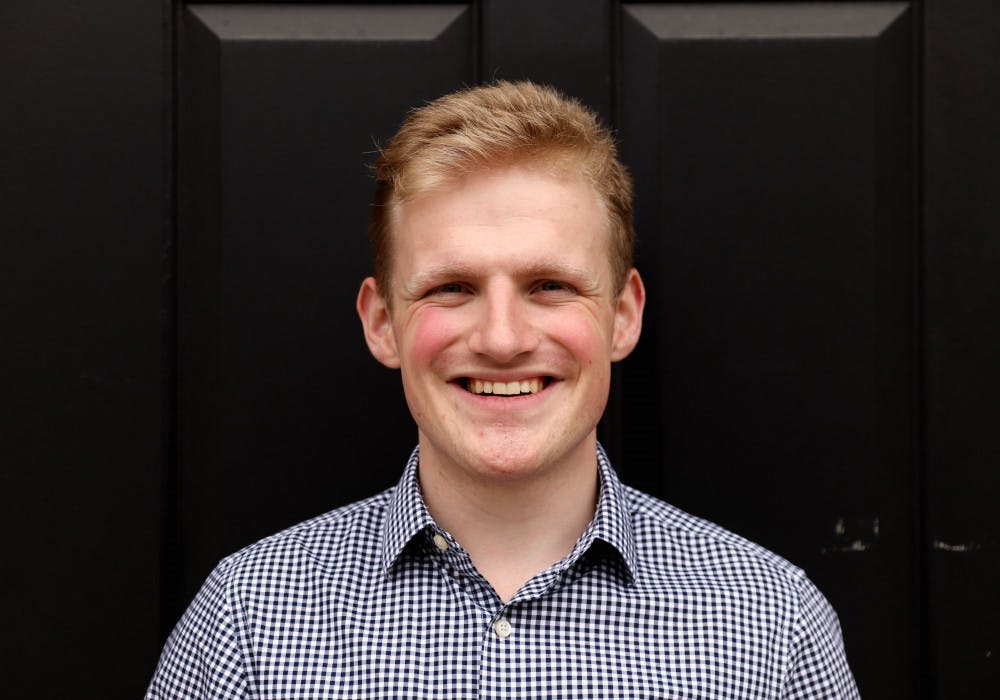Part of graduating is accepting unpredictability. Our graduating class will be forced to reckon with an emerging source of uncertainty: our changing climate and subsequent impacts upon societies, populations and individuals. The existence of climate change has been known for decades, but specific effects on food supply, sea-level rise and natural disasters have become more visible in our time at Brown.
As a result, it is incorrect to say we will be graduating into a wholly uncertain future. Climate change has a definite vector towards privation, recession and violence, in direct contrast to expected global outcomes of economic growth and increased quality of life. In other words, the ever-improving, if deeply flawed, world we expected to be handed upon graduation may no longer exist.
The conclusions reached in the 2018 Intergovernmental Panel on Climate Change report mean that a temperature rise of 1.5 degrees Celsius would result in extreme temperatures, heavy flooding, extended droughts and more wildfires. Preventing an increase of 1.5 degrees Celsius relies on cutting net emissions in half by 2030, and the difference between 1.5 and 2 degrees Celsius of temperature increase can be measured in tens of millions of lives. We create the future through our actions, but our options are rapidly dwindling and extensive, multifaceted action is required to avoid cataclysm.
This is the world that awaits us after Brown: Either we will see dramatic emission reductions in the next decade, or we will proceed with business as usual and will be committed to warming beyond 1.5 degrees Celsius by the middle of the next century. Some individuals will buy electric cars, install solar panels or go vegan, and institutions will continue to sign onto sustainability or carbon reduction pledges. This gradualism would have been welcome 20 years ago, but it cannot save us now. Further, business as usual will result in climate change which initially impacts low-income residents of coastal countries in the developing world. The death toll from climate-induced famines and wars will rise. Those least responsible for this disaster will be hurt the most while some hedge funds and security companies will profit off a fractured world. Carbon capture and geoengineering could delay and mitigate the worst consequences of this choice, but they cannot replace fundamental societal changes.
Our second path — a path that we can bring to reality — is one of global reconstruction focused on decarbonization. Standing alone, market-based solutions like carbon taxes present their own challenges: They can be regressive, placing a higher burden on low-income people. Further, they do little to address the already-planned exploration and extraction efforts of oil and gas companies, which will blow past 1.5 degrees Celsius targets on their own. Instead, our path — partially conceptualized in policy as the Green New Deal — must be reliant upon unprecedented levels of governmental investment and regulation, up to and including nationalization of the largest polluters or laws which would put them out of business. Rapid decarbonization would fly in the face of most economic theory and powerful institutional interests. Mobilizing for aggressive climate action is currently the only feasible way to preserve our society.
Commencement is a time for intergenerational contact, and at this point, anger at powerful members of older generations is more than justifiable. To be clear: Our elders have failed us in profoundly human ways which will irrevocably alter our lives. As a result, our graduating class must act on two tracks simultaneously: the first to decarbonize rapidly, the second to prepare for a world where this fails. Under no accepted ethical framework should this be our responsibility, yet it must be our mission. The scope of this crisis invites most disciplines and almost all solutions; your passion is unlikely to be inconsistent with the changes that must come. We will need scientists working on accessible, drought-resistant GMOs and artists reminding us of the better world within our grasp. We will need politicians who can alter systems while guarding against ecofascism or xenophobia and activists using direct action to ensure solutions are rooted in egalitarian justice.
Our actions on either front may not be enough. Each protest attended might be countered by shadowy political donations by oil companies, and all the agricultural knowledge which can be obtained in 20 years might be useless in the face of increasing temperatures, droughts and floods. But at this stage, it’s what we have left. The despair you might feel right now does not have to be an ending, any more than graduation from Brown is an ending. It is a chance to build communities we are proud to live in, take part in a fight with global consequences and act with a more complete understanding of the future.





